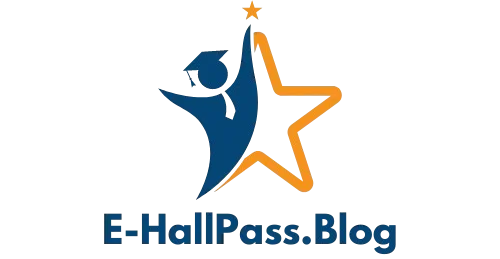Unlocking Global Markets: 5 Core Functions of Access Manager

In the current ultra-digitalized environment, reaching out to global markets is no longer a matter of growth strategy; it is a mandate. However, along with that opportunity comes a web of international regulations, technical standards, and access barriers that could make or break a product launch.
That is why the work of Global Validity’s Access Manager platform is more crucial than ever. Exclusive to Global Validity clients, Access Manager is designed to give clients real-time insights into the performance of its Global Market Access project managers as they handle product certifications.
Also Read: Navigating Aviation Licenses and Certifications Made Easy
Through this, clients can easily track the status of their projects as much or as little as they prefer, while the project managers manage all the complex steps to ensure successful product certification.
Therefore, Access Manager is not a behind-the-scenes supporting platform; it is a strategic platform that ensures the compliance of products that are complex by nature.
Read on to explore more of its functions.
1. Global Compliance Centralization Requirements
The capability to aggregate and centralize the global compliance data is one of the most crucial functions of Access Manager. It is important because regulations change significantly from country to country and across industries, making it hectic to keep up unless there is a centralized platform.
However, this platform features a dynamic master database of global compliance standards, certification requirements, and approval timelines. It helps Global Validity’s clients’ product teams see at a glance what is required in each market, including country-specific testing, documentation, and technical requirements.
As a result, it helps to avoid having siloed spreadsheets, out-of-date files, and last-minute surprises. Additionally, it ensures your product is always up to date with current regulatory expectations.
This centralization streamlines planning, accelerates time to market, and enables cross-departmental and regional teams to operate from a single platform.
2. Management of Certificates in Multiple Markets
Each market has a unique set of product certifications, including radio type approvals, safety labels, and environmental compliance. To facilitate compliance, Access Manager serves as a comprehensive certification tracker, tracking the lifecycle of all approvals.
Whether it’s expiry dates, renewals, testing labs, or audit deadlines, the platform automates the notification process and monitoring of milestones. It is particularly useful in businesses expanding to two or more fields simultaneously, which may experience duplication leading to confusion or backlogs.
Using this platform, teams will also ensure that they have complete clarity on certification status and schedules, ensuring nothing falls through the cracks. More significantly, through the summarization of historical data on approvals, companies are able to determine what may be reutilized or accepted in other regions.
Thus, it prevents redundancy and potentially reduces the time to product launch.
3. Automation Documentation and Reporting
The core of compliance is documentation. It involves the administrative burden of the product datasheets and test reports, legal declarations, and technical drawings. That can impede product launch in the market unless properly managed.
For this reason, Access Manager alleviates the cost of documentation by establishing standards for formats, automatically generating country-specific forms, and ensuring all files are easily maintained within a secure, well-organized framework.
It not only enhances accuracy but also makes communication with certification bodies, testing labs, and internal stakeholders easy. Also, its in-built reporting enables compliance managers to export in-depth dashboards, audit records, and previous approval histories in real-time.
In turn, this streamlined process helps with regulatory audits, internal oversight, and executive decision-making without tracking down each file or email.
4. Boosting Go-to-market Timescales
Speed is a competitive advantage, particularly when introducing goods to the market, such as hardware, medical gadgets, and electronic products. Historical approaches to global market access management include manual monitoring, unaligned suppliers, and disorganized information. It may lead to costly disruptions.
However, Access Manager simplifies the workflow by enabling smart sequencing, which identifies opportunities to allow the process to run in parallel instead of sequentially. Global Validity’s GMA Managers are also able to streamline clients’ product certification projects while clients have complete transparency into the process.
It also assists teams in prioritizing fast-track approvals or referring countries to see which have mutual recognition agreements. As a result, it reduces time and testing expenses.
Strategically, the platform can act as a speed booster, enabling companies to market more quickly and with reduced regulatory risk. This speed-to-market capability can be the difference between huge revenues and enhanced global presence, especially in the case of high-growth firms.
5. Facilitating Cross-Team Communications and Transparency
Commercializing a product requires a variety of teams in addition to the engineering, legal, compliance, operations, and executive leadership. In this context, lack of communication or data silos among such teams may result in missed deadlines, redundant work or unsuccessful audits.
Access Manager serves as a team collaboration space where stakeholders have access to the same information, project overview, job assignment and comments in real-time. It is beneficial for important projects, as the correct level of access and automated updates offer convenience and consistency.
Such visibility is not only more cost-effective for daily operations but also helps in strategic planning.
Conclusion
As businesses expand into more regions and face increasing regulatory scrutiny, managing market access manually is no longer viable. Access Manager isn’t just a convenience—it’s a necessity for organizations aiming to scale globally with confidence, speed, and compliance.
By centralizing regulatory intelligence, automating certification management, streamlining documentation, and enabling cross-functional collaboration, the platform transforms what used to be a slow, error-prone process into a proactive strategy for global growth.
Consequently, global market access is no longer a hurdle— it’s an opportunity to scale with the right access manager platform in place.






